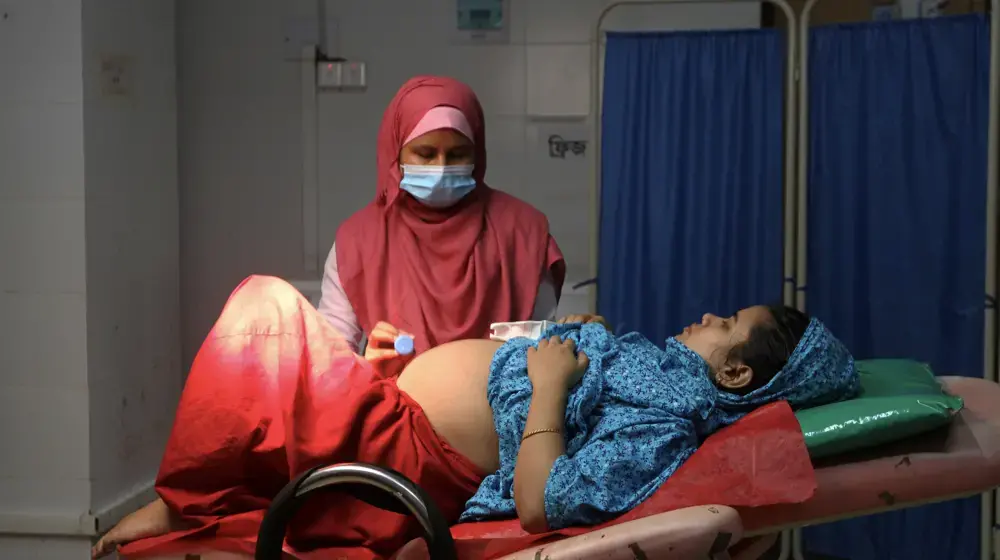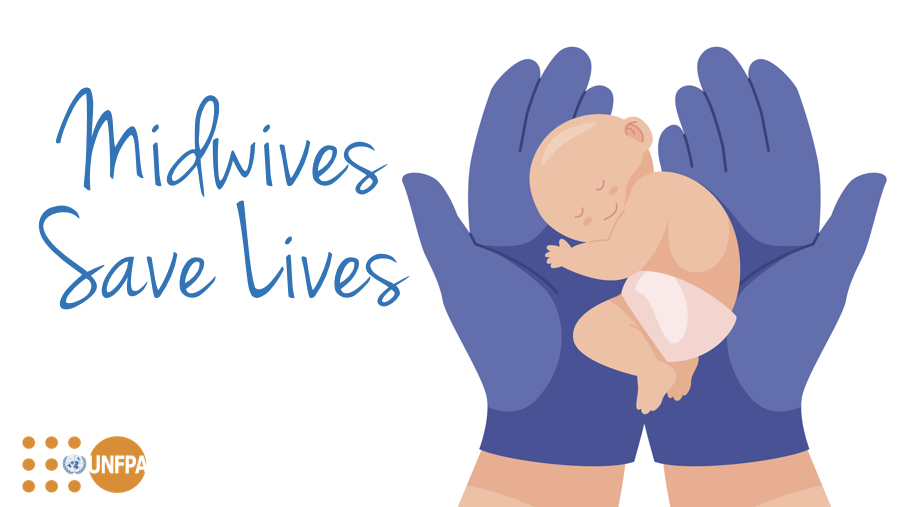Profile: Hazera from Bangladesh
“Despite the chaos, we midwives continued to work as normal”
7.2 million people were affected by the floods that hit north-eastern Bangladesh in June. Flash floods are putting women at high risk of drowning, water borne diseases and gender-based violence. The floods displaced nearly 500,000 people and conditions inside the shelters were challenging with overcrowding and a lack of safe spaces for women and children. Hazera Akther is a midwife from Sardar Upazila Health Complex. She was in the middle of the emergency as a frontline responder helping mothers have a safe birth, even in a crisis. For the last two years she has been increasing her skills in emergency births as part of a UNFPA-supported mentorship program.
“I woke up to people shouting outside my window. I realized the water had reached my room,” says Hazera. “It kept rising so fast that I thought the whole room would be under water in two minutes. I panicked, packed my most important certificates and immediately rushed upstairs.”
Hazera is a midwife from Sardar Upazila Health Complex in Sunamganj District in north-eastern Bangladesh. She is also pregnant so her escape from the flood waters in June was even more terrifying.
“There was water everywhere,” she says. “There was pure chaos everywhere. People were rushing all over the place and the roads were covered in water.”
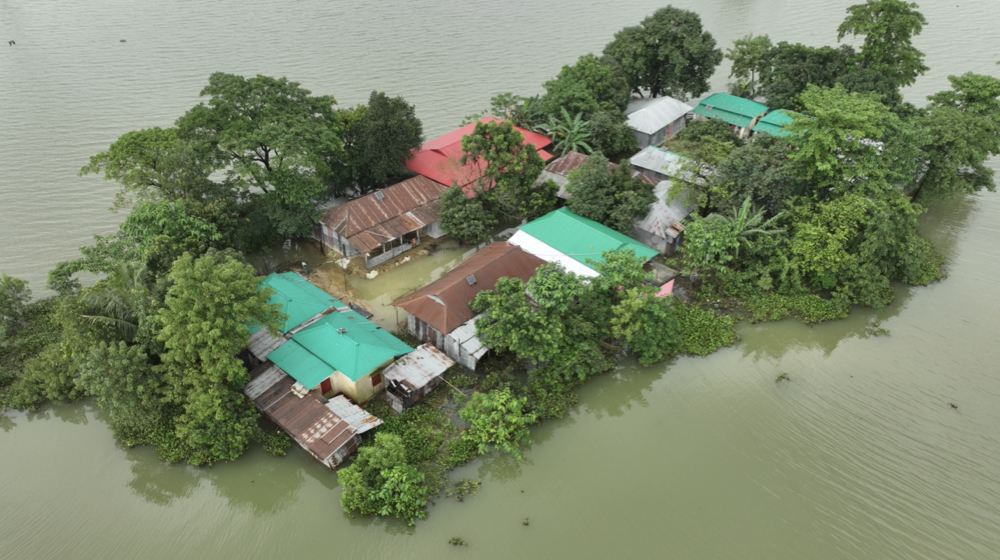
Hazera says the flood triggered a food crisis as there were not enough stocks to share with people displaced by the floods. “There was also a lot of stealing from the empty houses,” she recalls. “Despite the chaos, we midwives continued to work as per normal.”
Her workplace is walking distance away from her house, but it was necessary to take a boat to reach the hospital because of the flood waters. “If we could not find a boat, we had to walk through the water to the hospital. The water level would reach my chest and I would perform my duties for the rest of the day in wet clothes.”
“I was afraid of snakes in the water and about my legs getting cut on something,” she says. “None of us stayed back at home, because we knew that if there were no midwives or nurses in the hospital, the life of pregnant mothers would be at risk.”
“We knew that if there were no midwives or nurses in the hospital, the lives of pregnant mothers would be at risk.”
Hazera says her first thought when the floods happened was that she would need to take a step back from service for the safety of her baby. “Somehow I knew I could not stop working,” she says. “I had to be there for pregnant women. Every time I saw their faces, I knew what crisis they were going through.”
In the aftermath of the floods, people started taking shelter in the hospital. 25,000 people took shelter there. “Families brought their dogs, hens and goats with them. It was smelly and there was dung everywhere. People even had to cook amidst all this.”
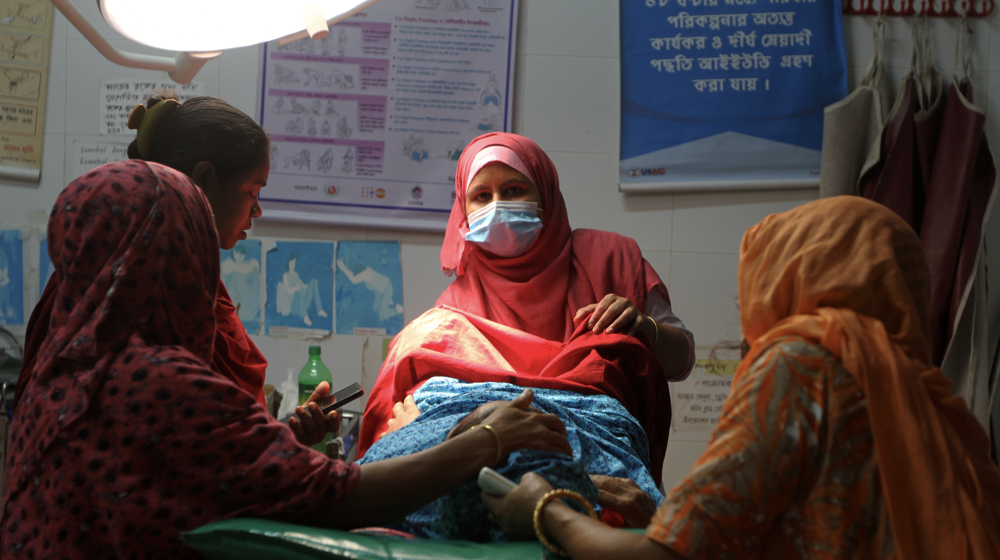
The rooms of the hospital were packed with people but Hazera made sure that the delivery room remained unoccupied. Upazila Health Complex is the biggest hospital in the area, so pregnant mothers from the district with complications were referred during the floods.
“For the first three days, there was no electricity and we did the deliveries and surgeries in candle light,” Hazera recalls. In the midst of this emergency, a woman arrived with a postpartum hemorrhage. “She kept bleeding profusely,” she says. “She had somehow managed to take a boat from her village and come to our hospital.”
The child had survived the delivery, but the mother was having complications. “When she came in, I performed a check-up on her, and I tried to figure out what was causing the bleeding. I found that she had a bad internal tear.”
“Being pregnant myself, I was proud that I was coming to the hospital to serve fellow pregnant mothers.”
With the telecommunications network gone, they could not call senior doctors in other districts for advice. “We had to make decisions based on our own expertise,” she says. “In the dark room, with the help of other midwives, I was able to repair the tear.”
Hazera is happy that as a pregnant woman, she was able to serve and be at the side of other pregnant mothers. “Being pregnant myself, I was proud that I was coming to the hospital to serve fellow pregnant mothers,” she says. “I was able to listen and comfort them with their stress about finances and food scarcity. I told them that the floods would not last forever and that they would soon be able to return home.”
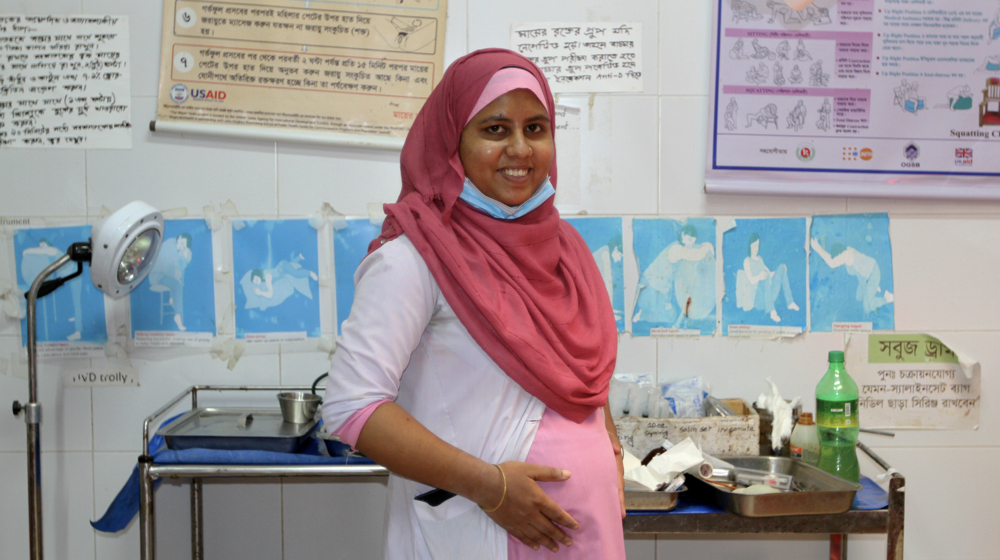
Learn more
The State of the World’s Midwifery Report - 2021

